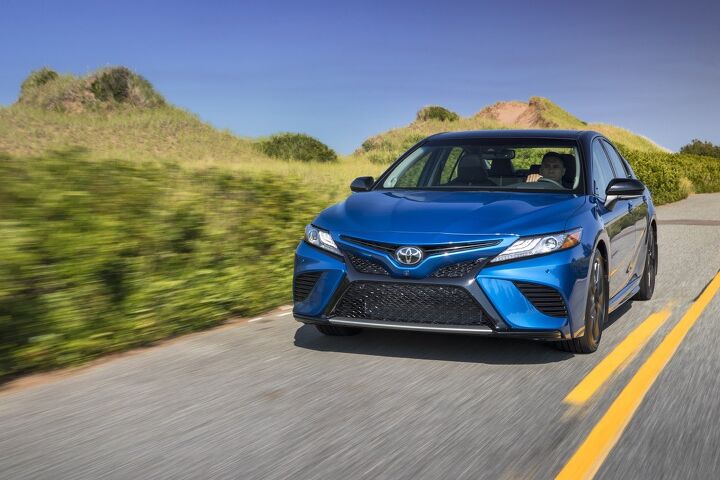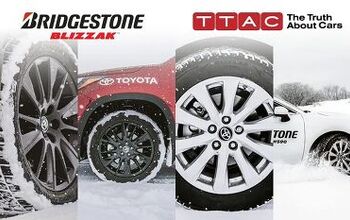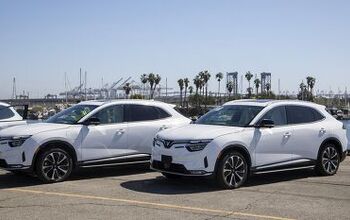Midsize Car Sales Weren't Actually That Bad in the First Quarter; Toyota Camry Market Share Is Rising
After years of steady decline, including an 8-percent decrease in calendar year 2019, U.S. sales of midsize cars stabilized in the early part of 2020.
In a manner of speaking.
Like the overall market, midsize car sales in the first quarter of 2020 declined. But the segment’s decrease was only marginally worse than the decline reported by the overall market, and it wasn’t nearly as bad as the decreases reported elsewhere in the passenger car sector.
Meanwhile, at the top of the midsize heap, the Toyota Camry continued to improve its market share, expanding the size of its slice in a shrinking pie.
The decline of America’s once-favored midsize sedan market is thoroughly, perhaps infamously, chronicled here at TTAC. Near the end of 2019, we reported that the segment had lost half of its market share since the recession a decade prior, and that midsize sales may not top 1.4 million units in 2019.
The end result was 1.376 million sales for the midsize segment, a drop of 119,000 sales in a market that was down by roughly 211,000 sales. Midsize car market share dipped to 8 percent, the sixth consecutive year of market share decline.
Through the first three months of 2020, midsize car market share has actually held relatively steady just above 8 percent, a feat of remarkable strength given the wild declines reported by some members of the category.
No doubt, COVID-19’s March impact surely caused the knife to dig in deeper. Honda Accord sales fell 27 percent in 2020 Q1. The Hyundai Sonata was down 28 percent. Mazda 6 sales tumbled 35 percent. The Subaru Legacy and Volkswagen Passat both lost more than one-fifth of their volume.
The top-selling Toyota Camry, on the other hand, only fell slightly below 2019’s first-quarter sales pace. Faring much better than the auto industry at large, Camry sales dipped “just” 6 percent. The only car to fare better was the fifth-ranked Chevrolet Malibu, which ticked upward at a 3-percent clip.
If the Camry continues to outpace the segment by losing only a small portion of the previous year’s demand – and everything is a big if in during a pandemic – then 2020 will be seventh consecutive year in which Camry market share has improved.
Don’t mistake the market share growth for actual sales improvement. Camry sales have fallen 18 percent since that streak of market share growth began. Excluding recession-era sales in 2010 and the Tōhoku earthquake crisis of 2011, 2019 was the worst year for Camry volume in America since 1995. This is not a car that’s becoming more prevalent in American driveways. And it’s hard to imagine that any potential auto sales recovery in the second half of 2020, which hardly seems likely, will be irretrievably linked to a midsize car. Could 2020 be the first sub-300K U.S. sales year for the Toyota Camry since 1993? The first sub-250K sales year since 1988?
If so, 2020 will treat the Camry’s competitors even more harshly. Increasingly, America’s remaining midsize car buyers are Camry buyers. From 17 percent of the midsize segment in 2013, and with 10 active rivals remaining, the Camry is now garnering more than a quarter of the category’s interest.
[Image: Toyota]
Timothy Cain is a contributing analyst at The Truth About Cars and Driving.ca and the founder and former editor of GoodCarBadCar.net. Follow on Twitter @timcaincars and Instagram.
More by Timothy Cain
Latest Car Reviews
Read moreLatest Product Reviews
Read moreRecent Comments
- Carson D Just don't be the whistleblower who reports on the falsification of safety data. That's a deadly profession.
- Carson D I'd have responded sooner, but my computer locked up and I had to reboot it.
- Todd In Canada Mazda has a 3 year bumper to bumper & 5 year unlimited mileage drivetrain warranty. Mazdas are a DIY dream of high school auto mechanics 101 easy to work on reliable simplicity. IMO the Mazda is way better looking.
- Tane94 Blue Mini, love Minis because it's total custom ordering and the S has the BMW turbo engine.
- AZFelix What could possibly go wrong with putting your life in the robotic hands of precision crafted and expertly programmed machinery?



































Comments
Join the conversation
Hyundai has cut back sharply on fleet sales for the new Sonata (highest ATP in the segment) so someone had to be picking up the slack (before C-19 tanked fleet sales).
The new Camry gets terrific fuel economy. I've seen 44 mpg easy on the open road. Around the suburbs, 27-20 mpg. And it's comfortable enough I needed a car for long trips. This sucker delivers. The high-zoot styling will probably date badly but for right now I'm happy with it.